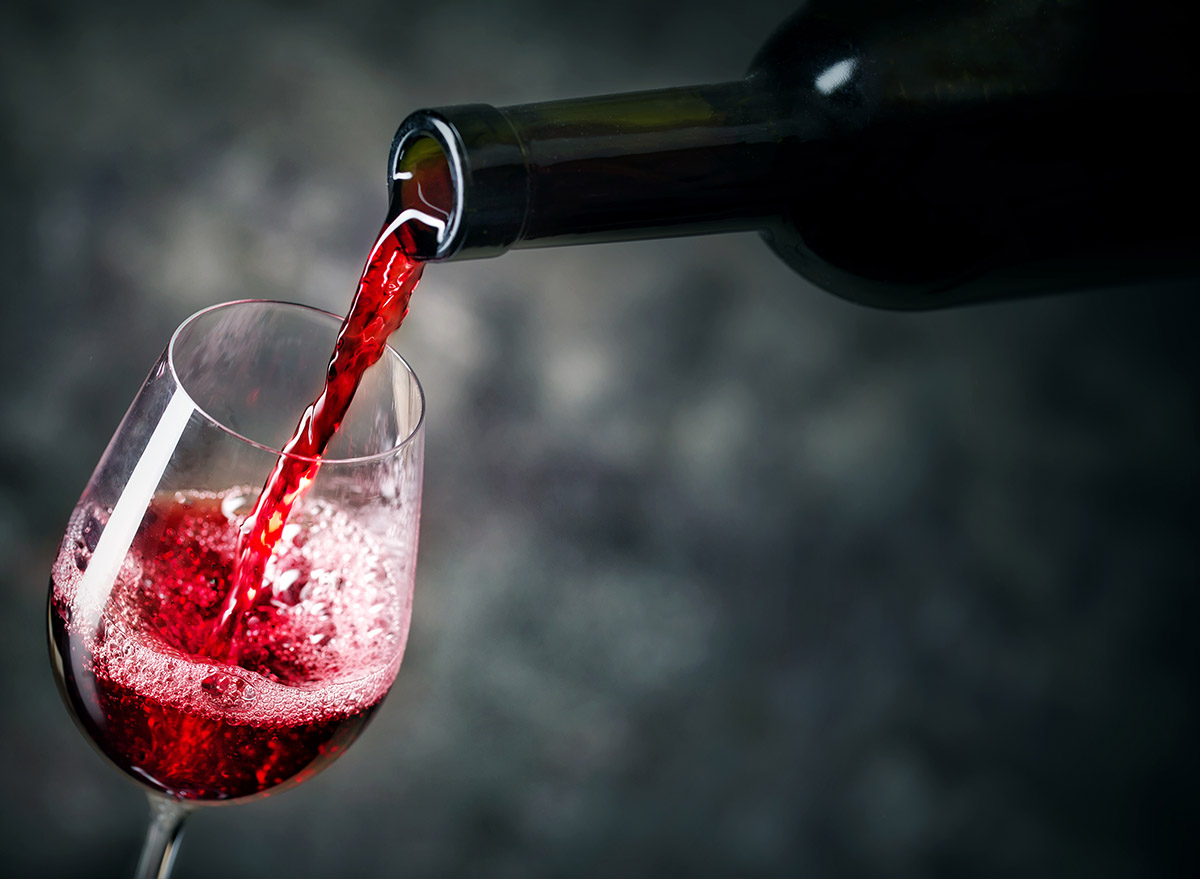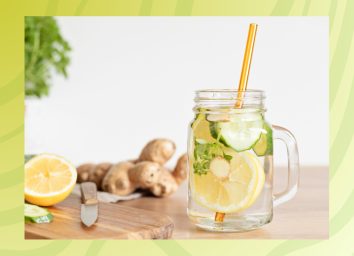One Major Effect Drinking Red Wine Has on Your Heart, Says New Study

Could a glass of red wine really be a heart-health booster? According to a new study in Hypertension, you can toast with confidence.
Researchers evaluated food intake of over 100 items for 904 adults between the ages of 25 and 82, and assessed other factors as well, such as gut bacteria composition and blood pressure levels. They found that those who consumed the most flavonoid-rich foods had lower systolic blood pressure compared to those who had the least.
In addition to red wine, flavonoid compounds are found in:
- Berries
- Apples
- Pears
- Bell peppers
- Red cabbage
- Black and green tea
- Dark chocolate

In the study, drinking just under three glasses of red wine per week was associated with an average of 3.7 mm Hg lower systolic blood pressure than non-drinkers. Part of that effect likely comes from an assist in gut bacteria, according to study lead Aedín Cassidy, Ph.D., chair and professor in nutrition and preventive medicine at the Institute for Global Food Security at Queen's University in Northern Ireland.
Recent studies have found a link between a healthy gut and a strong heart, he says, which may be explained by a reduction in inflammation. Although this association needs more investigation, Cassidy says it's promising to see what type of cardiovascular protection might come from increased consumption of flavonoid-rich foods.
Plus, it's not just your heart that can benefit. Another recent study, published in Neurology, found that people who eat a diet high in flavonoids have up to 20% lower risk of cognitive decline as they age, also due to less inflammation.
That's an indication that reducing inflammation through healthy eating—and an occasional glass of red wine—can have a positive effect on the body, even if you're starting this way of eating later in life, according to that study's author, Walter Willett, M.D., professor of epidemiology at the Harvard T.H. Chan School of Public Health at Harvard University.
"Adding these foods is a simple change anyone can made, and it can offer benefits at any time," he says. "You don't have to eat like this for years for it to have significant advantages, you can see a protective effect right away. And you'll likely see a profound impact as you continue."
For more, be sure to read 12 Surprising Health Benefits of Red Wine.








